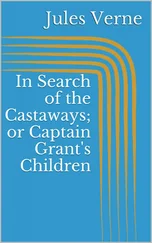Jules Verne - Round the World in Eighty Days
Здесь есть возможность читать онлайн «Jules Verne - Round the World in Eighty Days» — ознакомительный отрывок электронной книги совершенно бесплатно, а после прочтения отрывка купить полную версию. В некоторых случаях можно слушать аудио, скачать через торрент в формате fb2 и присутствует краткое содержание. Жанр: Прочие приключения, foreign_prose, на английском языке. Описание произведения, (предисловие) а так же отзывы посетителей доступны на портале библиотеки ЛибКат.
- Название:Round the World in Eighty Days
- Автор:
- Жанр:
- Год:неизвестен
- ISBN:нет данных
- Рейтинг книги:5 / 5. Голосов: 1
-
Избранное:Добавить в избранное
- Отзывы:
-
Ваша оценка:
- 100
- 1
- 2
- 3
- 4
- 5
Round the World in Eighty Days: краткое содержание, описание и аннотация
Предлагаем к чтению аннотацию, описание, краткое содержание или предисловие (зависит от того, что написал сам автор книги «Round the World in Eighty Days»). Если вы не нашли необходимую информацию о книге — напишите в комментариях, мы постараемся отыскать её.
Round the World in Eighty Days — читать онлайн ознакомительный отрывок
Ниже представлен текст книги, разбитый по страницам. Система сохранения места последней прочитанной страницы, позволяет с удобством читать онлайн бесплатно книгу «Round the World in Eighty Days», без необходимости каждый раз заново искать на чём Вы остановились. Поставьте закладку, и сможете в любой момент перейти на страницу, на которой закончили чтение.
Интервал:
Закладка:
But it was now evident to Passe-partout that his master intended to push on from Bombay as rapidly as he had left Paris and Suez; that the journey was not to end at Bombay, it was to be continued to Calcutta at any rate, and perhaps even farther still. Passe-partout then began to think that perhaps the bet was really the object, and that fate had indeed condemned him, with all his wish for rest, to journey around the world in eighty days.
However, having purchased some necessary articles, he walked about the streets of Bombay. There were a great number of people about – Europeans of all nationalities; Persians, wearing pointed caps; Buntryas, with round turbans; Scindees, with square caps; Armenians, in their flowing robes; Parsees, with black mitres. It was a Parsee festival that day.
These Parsees are followers of Zoroaster, and are the most industrious, most intelligent, and most civilised of the native races, and to which the majority of the Bombay merchants belong. On that occasion a sort of religious carnival was being held; there were processions, and numbers of dancing-girls clad in gauzy rose-coloured garments, who danced modestly and gracefully to the sound of the tom-tom and viols.
Passe-partout, as may be imagined, drank in all these sights and sounds with delight; and his expression at the unusual spectacle was that of the greatest astonishment.
Unfortunately, his curiosity very nearly compromised the object of his master's journey. He wandered on, after watching the carnival, on his way to the station; but seeing the splendid pagoda on Malabar Hill, he thought he would like to go in. He was quite unaware of two things: first, that certain pagodas are closed to all Christians, and even the believers can only obtain admittance by leaving their shoes or slippers at the doors of the temple. The British Government, respecting the native creed, severely punishes anyone attempting to violate the sanctity of the native mosques or temples.
But Passe-partout, innocent of harm, tourist-like, went in, and was admiring the pagoda and the lavish ornamentation of the interior, when he suddenly found himself sprawling on his back on the pavement Over him stood three angry men, who rushed upon him, tore off his shoes, and began to pommel him soundly, uttering savage cries as they did so.
The agile Frenchman was quickly upon his feet again, and with a couple of well-directed blows of his fists upset two of his adversaries, who were much encumbered in their long robes; then, rushing out of the temple, he quickly distanced the remaining Hindoo and evaded him in the crowd.
At five minutes to eight he presented himself at the railroad station, without his hat and shoes and minus the parcel in which all his purchases were wrapped. Fix was there on the platform. Having tracked Fogg, he perceived that that worthy was about to leave Bombay at once. Fix made up his mind to go with him as far as Calcutta, and even beyond if necessary. Passe-partout did not notice the detective, who kept in the shade; but the policeman heard the recital of the valet's adventures, which Passe-partout told to his master in a few sentences.
"I trust this will not happen again," replied Fogg, quietly, as he took his seat in the carriage.
The poor lad, quite upset and minus his hat and shoes, took his place also without replying.
Fix was getting into another compartment, when suddenly a thought struck him, and he muttered:
"No, I will remain. An offence has been committed upon Indian ground.
I've got my man!"
At that moment the engine uttered a piercing whistle, and the train moved out into the night.
CHAPTER XI
Showing how Phileas Fogg purchased a "Mount" at a Fabulous Price.
The train started punctually, carrying the usual complement of travellers, including officers of the civil and military classes and merchants. Passe-partout was seated near his master, a third traveller had secured a corner opposite.
This gentleman was General Sir Francis Cromarty, one of Mr. Fogg's whist-party on board the Mongolia , who was en route to take up his command at Benares.
Sir Francis was a tall fair specimen of the British officer, about fifty years old. He had greatly distinguished himself during the Mutiny. He had been in India almost all his life, and only paid occasional visits to his native country. He was a well-informed man, and would willingly have imparted any information he possessed, had Phileas Fogg chosen to apply to him. But the latter did nothing of the kind. He never travelled. He merely made a track across country. He was a heavy body, describing an orbit around the terrestrial globe, according to certain mechanical laws. At that time he was actually engaged in calculating how many hours had passed since he left London, and he would have rubbed his hands joyfully, had he been one of those people who indulge in these needless enthusiastic demonstrations.
Sir Francis Cromarty had already noticed the eccentricity of his companion while at whist, and had questioned seriously whether a human heart actually beat beneath that cold envelope of flesh, whether Fogg really possessed a soul alive to the beauties of nature, and subject to human failings and aspirations. That was what puzzled the gallant soldier. None of the many original characters which it had been his fortune to encounter had, in any way, resembled this product of the action of exact science upon humanity.
Phileas Fogg had not concealed from Sir Francis the object of his journey round the world, nor the conditions under which he had undertaken it. The general saw nothing in this wager but the eccentricity of its surroundings, and the want of transire benefaciendo which ought to guide any reasonable man. If this extraordinary man went on in this manner all his life, he would finally quit the world, having done absolutely nothing for his own benefit or for that of others.
An hour after leaving Bombay, the train crossed the viaduct carrying the line from Salsette to the mainland. At Callyan station they left the branch-line to Kandallah and Poona on the right, and proceeded to Panwell. Here they traversed the gorges of the Western Ghauts, composed of trap and basaltic rocks, the highest summits of which are crowned with thick trees.
Sir Francis Cromarty and Phileas Fogg occasionally exchanged a few words, and at one time the general picked up the thread of conversation by remarking:
"A few years ago, Mr. Fogg, you would have experienced a considerable impediment to your journey here, and would most likely have compromised your success."
"How do you mean, Sir Francis?"
"Because the railway did not go beyond the base of these mountains, and it was then necessary to make the journey in palanquins or on ponies as far as Kandallah on the opposite slope."
"Such an interruption would not in any way have disarranged my plans," replied Mr. Fogg. "I have taken precautions against certain obstacles."
"Nevertheless, Mr. Fogg, you very nearly had an awkward bit of business on hand in consequence of yonder fellow's adventure."
Passe-partout was fast asleep, with his feet well muffled up in the railway-rug, and was quite unconscious that he was the subject of conversation.
"The British Government is extremely strict, and with reason, upon any such offences," continued Sir Francis. "Above everything, it considers that the religious feelings of the native races should be respected, and if your servant had been arrested – "
"Well," interrupted Mr. Fogg, "well. Sir Francis, suppose he had been taken and condemned and punished, he might have returned quietly to Europe afterwards. That would not have been a reason for stopping his master."
And then the conversation again languished. During the night the train crossed the mountains, passed Nassik, and next day, the 21st October, it traversed a comparatively flat district of Kandish. The well-cultivated country was sprinkled with villages, above which the minarets of the pagodas took the place of the English church-spires. Numerous tributaries of the Godavery watered this fertile territory.
Читать дальшеИнтервал:
Закладка:
Похожие книги на «Round the World in Eighty Days»
Представляем Вашему вниманию похожие книги на «Round the World in Eighty Days» списком для выбора. Мы отобрали схожую по названию и смыслу литературу в надежде предоставить читателям больше вариантов отыскать новые, интересные, ещё непрочитанные произведения.
Обсуждение, отзывы о книге «Round the World in Eighty Days» и просто собственные мнения читателей. Оставьте ваши комментарии, напишите, что Вы думаете о произведении, его смысле или главных героях. Укажите что конкретно понравилось, а что нет, и почему Вы так считаете.












